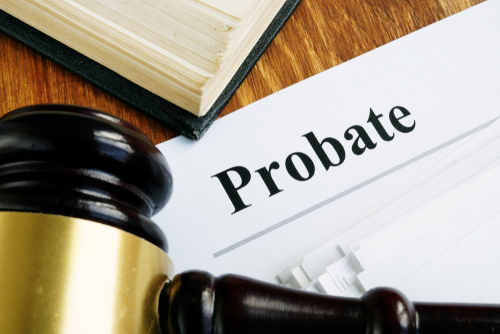As each new year rolls around, you might have traditions and tasks that you take care of to make the upcoming year easier and more productive for your family. Estate planning for your accounts and properties and their ownership should be included in these yearly plans, especially after the death of a loved one. How your accounts are owned makes a big difference in estate planning. The worst scenario is to have accounts or property without named beneficiaries that need to go to probate when you die. Probate is a costly, public, and time-consuming process that most would want to avoid. Unfortunately, none of us know how long we will be on this earth, and therefore it is better to keep everything up-to-date as part of a yearly plan.
Accounts with Beneficiary Designations
Your accounts with beneficiary designations such as life insurance policies, retirement accounts, and annuities will be distributed to your beneficiaries upon your death without the need for probate court involvement. For this reason, it is important to have primary beneficiary designations and contingent beneficiaries. If you only have a primary beneficiary and that person predeceases you, the policy or account agreement’s default rules will determine how the account will be distributed upon your death. The default rules will depend on your state. If you do not have current beneficiaries named, the balance of your account may go to your spouse, your heirs, or your estate. If the account is distributed to your estate, your loved ones will have to go through the probate process. You can prevent this from happening by keeping your primary beneficiary designation current and adding contingent beneficiaries.
Pay-on-Death and Transfer-on-Death Designations
If your cash accounts have a pay-on-death designation or your investment, brokerage, or stock accounts have a transfer-on-death registration, you may be able to name a beneficiary. These types of accounts allow you to retain ownership of the account throughout your lifetime but provide a way to transfer the account upon your death to your beneficiary without the need for probate. If these accounts are not kept current in terms of beneficiary designations, then the account will be subject to probate.
Owning Property Jointly
Many people choose to own a property or an account with a spouse or partner as joint ownership with rights of survivorship. If one member of the couple dies, the other owns the property or account in its entirety without going to probate court. After one partner dies, the remaining partner now owns the property individually. Without further estate planning, this account or property needs to go through probate when the living partner dies. The same rule applies if you jointly own a property with your spouse or partner as tenants by the entirety. If one owner dies, the other solely owns the property. When a property is individually owned, you need to consider other property planning options to avoid probate.
Revocable Living Trust
Transferring your property and accounts into a revocable living trust mitigates many of these problems. It is important to review your accounts and property to ensure the revocable living trust is the owner of the accounts and property, except for some accounts, such as retirement accounts.
As you acquire more property and accounts or inherit from a deceased loved one, it is important to address these new additions in your estate planning. Options may include modifying your current estate plan to adding an additional planning tool, such as a special trust. Whenever possible, check to see if you can name a beneficiary for all accounts.
Without estate plans, you leave the distribution of your property and accounts and decision-making to the courts. Decisions such as
- Who will receive each of your accounts and property at your death?
- How much each person will receive?
- When each person will receive their inheritance, a major question when minors are involved?
Whether you started the estate planning process and stalled or have new property and accounts that need to be added to your estate plan, there is no time like the present to make your estate plans current. Whether you need a new estate plan or need to update your current one, we can help you. You are welcome to schedule a call with us or reach us directly at 855.434.2062 to learn more about how best to plan today to protect those most important to you.








